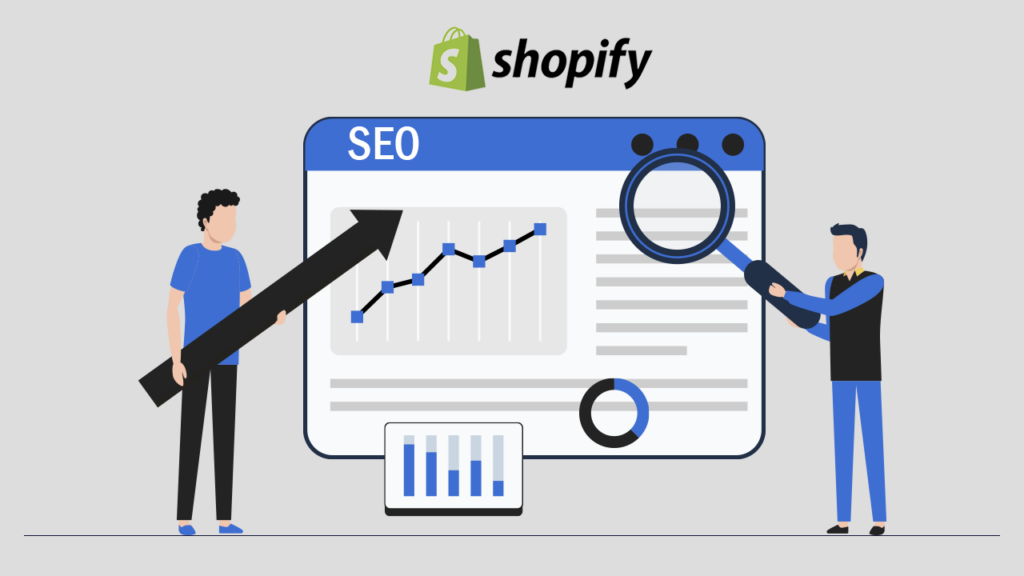Shopify SEO Services & Search Marketing Experts
For over 7 years at Rankify, we’ve honed our expertise in SEO, specializing in Shopify SEO services designed to elevate your rankings, increase traffic, and boost sales. Our commitment to eCommerce search engine optimization enables us to implement proven techniques and SEO strategies that make a tangible difference for your Shopify store. We’re eager to engage with you and discuss how we can help you achieve your marketing objectives

With a full in-house team of SEOs, designers and developers, we're industry leading Shopify SEO experts for a reason.
Looking to transform your Shopify website’s SEO performance? With over 7 years of experience, Rankify delivers game-changing results. Our seasoned expertise spans hundreds of successful eCommerce SEO campaigns, consistently driving month-over-month growth in online sales. Let’s work together to elevate your SEO strategy and achieve remarkable outcomes!
What's included in Shopify SEO services?
Keyword Research: Identify relevant keywords that your target audience is searching for to optimise your product pages, collections, and content.
On-Page Optimisation: Optimise your Shopify website’s on-page elements, including titles, meta descriptions, headings, and content, to align with targeted keywords and improve search visibility.
Technical SEO: Ensure that your Shopify website is technically sound, with proper URL structures, site speed optimisation, mobile responsiveness, and crawl ability for search engine bots.
Content Creation: Develop high-quality, optimised content such as product descriptions, blog posts, and guides to attract organic traffic and engage potential customers.
Link Building: Build authoritative backlinks from reputable websites to improve your Shopify store’s domain authority and search engine rankings.
Local SEO: Optimise your Shopify store for local search if you have a physical location, including optimising Google My Business listings and local citations.
Conversion Rate Optimization (CRO): Implement strategies to improve the conversion rate of your Shopify store, such as optimizing product pages, improving site navigation, and enhancing the checkout process.
Monitoring and Reporting: Regularly monitor your Shopify store’s SEO performance, track key metrics such as traffic, rankings, and conversions, and provide comprehensive reports to measure the effectiveness of the SEO campaign.
Shopify SEO Tips for Ranking Your Store at The Top of Google
Keyword Research: Conduct thorough keyword research to identify relevant search terms that potential customers are using. Use tools like Google Keyword Planner, SEMrush, or Ahrefs to discover high-volume keywords with moderate competition.
Optimise Product Titles and Descriptions: Use targeted keywords in your product titles, meta titles, meta descriptions, and product descriptions to improve visibility in search results. Make sure the language is natural and compelling to attract clicks.
Create Unique and Compelling Content: Develop high-quality, keyword-optimized content such as blog posts, buying guides, and tutorials related to your products or industry. This can help attract organic traffic and establish your store as an authority in your niche.
Optimise On-Page Elements: Optimise on-page elements such as headings, image alt tags, and internal linking structure to improve crawl ability and relevance. Ensure that your website is user-friendly and mobile-responsive for a seamless user experience.
Improve Page Speed: Google considers page speed as a ranking factor, so optimise your Shopify store for faster loading times. Use tools like Google PageSpeed Insights or GTmetrix to identify and fix any speed issues.
Build Quality Backlinks: Earn backlinks from authoritative websites in your industry to improve your site’s authority and credibility. You can reach out to influencers, guest post on relevant blogs, or participate in industry forums to build quality links.
Optimise for Local SEO: If you have a physical store, optimise your Shopify website for local search by claiming your Google My Business listing, optimising local citations, and using local keywords in your content.
Regularly Update and Add New Content: Keep your Shopify store fresh and relevant by regularly updating product listings, adding new content, and optimising for trending topics in your industry. This shows search engines that your site is active and authoritative.
Monitor and Analyze Performance: Use tools like Google Analytics and Google Search Console to monitor your Shopify store’s performance, track keyword rankings, and identify areas for improvement. Adjust your SEO strategy based on data and insights gathered from these tools.

